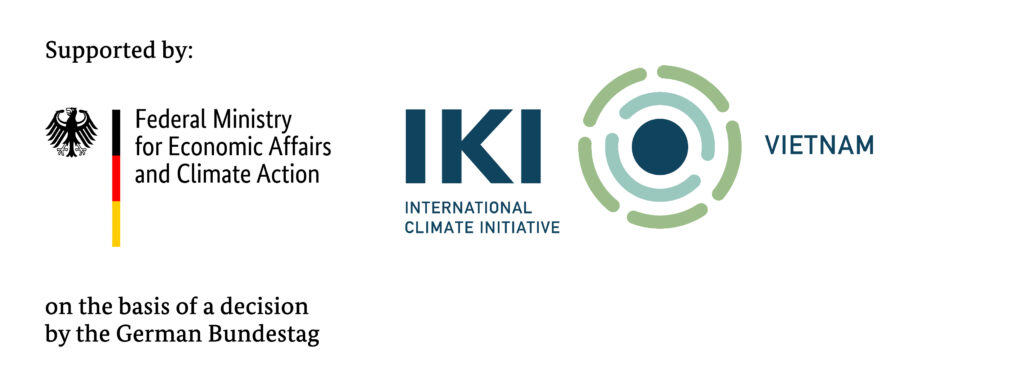Vietnam, boasting an extensive coastline, is naturally endowed with favorable conditions for tourism and coastal and marine economic development. However, it currently contributes to 6% of the global amount of plastic waste entering the ocean annually, primarily due to inadequate management, limited human resource capacity, insufficient waste treatment systems, and a lack of consideration for plastic waste in marine environmental protection and pollution control strategies. Consequently, the coastline faces a myriad of pressures. Hence, it is crucial to augment and prioritize the management of plastic waste in national plans, particularly in the planning of natural coastal resources, which directly influences the efficacy of coastal area utilization and management.
Vietnam is currently in the process of developing and assessing a master plan for the sustainable utilization of natural coastal resources spanning from 2021 to 2030, with a vision extending to 2045. Spearheaded by the Vietnam Agency of Seas and Islands (VASI), this initiative presents a crucial opportunity to integrate land-based plastic waste management into national strategies, laying the groundwork for widespread and inclusive plastic-free and eco-friendly practices in coastal resource utilization. Collaborating with the Regional Knowledge Hub at the ASEAN level, the Vietnamese government is actively engaged in efforts to enhance national 3R measures and prevent plastic waste leakage.
The master plan encompasses various perspectives, including:
- Leveraging the sharing and synergizing mechanisms of the ASEAN network and knowledge hub to devise and implement national plastic waste management measures.
- Identifying sources of waste leakage and proposing tangible solutions for activities along coastlines and river basins in line with international commitments such as Global Treaties or national objectives (e.g., Net-Zero, Circular Economy).
- Prioritizing plastic waste management due to its enduring characteristics, focusing on reducing plastic manufacturing and promoting the adoption of biodegradable and eco-friendly alternatives.
Figure 1 illustrates the mainstreaming of Reduction, Reuse, and Recycle (3R) solutions into coastal resource utilization planning, based on the circular structure of the sustainable economy diagram developed by Kosseva (2011). This includes encouraging waste prevention through the use of eco-friendly materials, particularly in coastal cities reliant on tourism, where reducing plastic usage among vendors and tourists is crucial to prevent sea leakage, drawing lessons from experiences in countries like Thailand (Wong, 1998).
 Figure 1. Mainstreaming Reduction – Reuse – Recycle of plastic waste into coastal resource use planning
Figure 1. Mainstreaming Reduction – Reuse – Recycle of plastic waste into coastal resource use planning
To effectively implement this planning in an eco-friendly manner, plastic waste-related policies in Vietnam for the upcoming decade should prioritize:
- Enhancing the political framework and regulations:
- Establishing an inclusive roadmap towards a circular economy and zero-waste objectives.
- Setting quality standards for recycled products and creating favorable conditions for recycling markets in Vietnam.
- Strengthening Extended Producer Responsibility (EPR) and fostering Public-Private Partnerships (PPP) in plastic industries along coastal and riverine areas.
- Improving interdisciplinary collaboration and stakeholder engagement in policy-making and planning processes:
- Facilitating early and comprehensive involvement of researchers, private sectors, and local communities to leverage local and grassroots knowledge (Ferrer et al., 1997).
- Facilitating international and regional knowledge exchange and technology transfer.
- Enhancing systematic plastic waste management:
- Launching communication campaigns to enhance public awareness and foster behavioral changes among coastal and riverine communities.
- Providing practical guidance for communities on source segregation practices.
Through concerted efforts guided by these policies, Vietnam can effectively address the challenge of plastic waste in coastal areas while promoting sustainable resource utilization and environmental conservation.
For Further information on please contact Christoph Klinnert (christoph.klinnert@giz.de)

